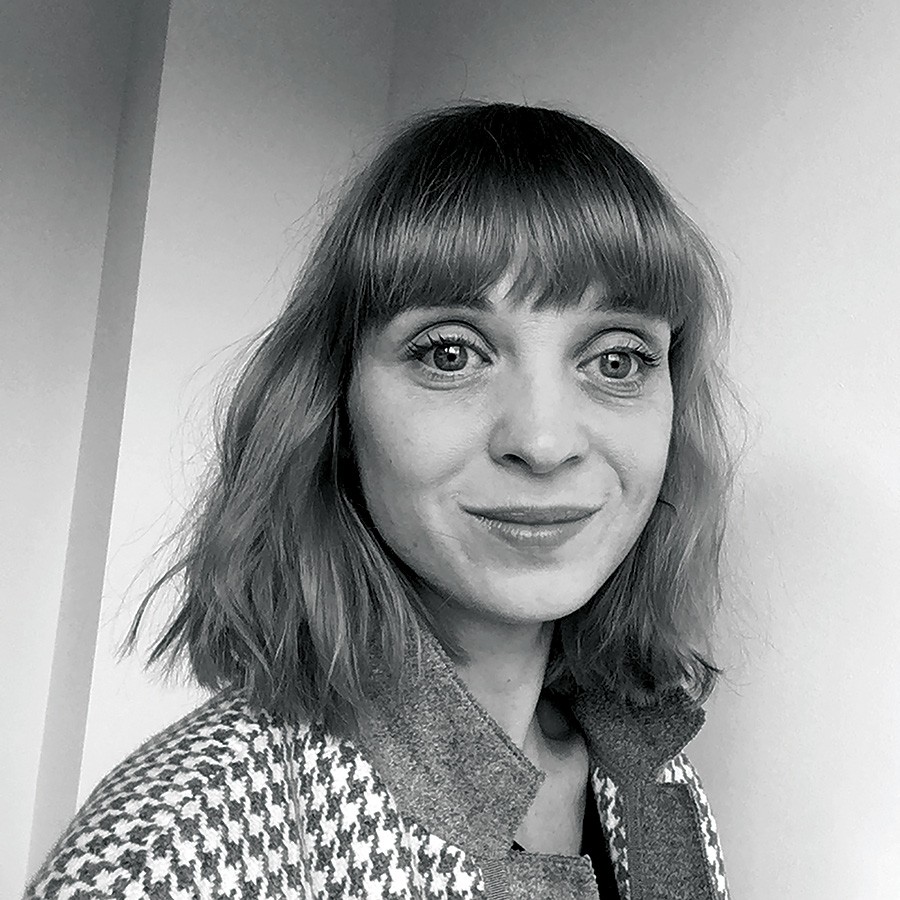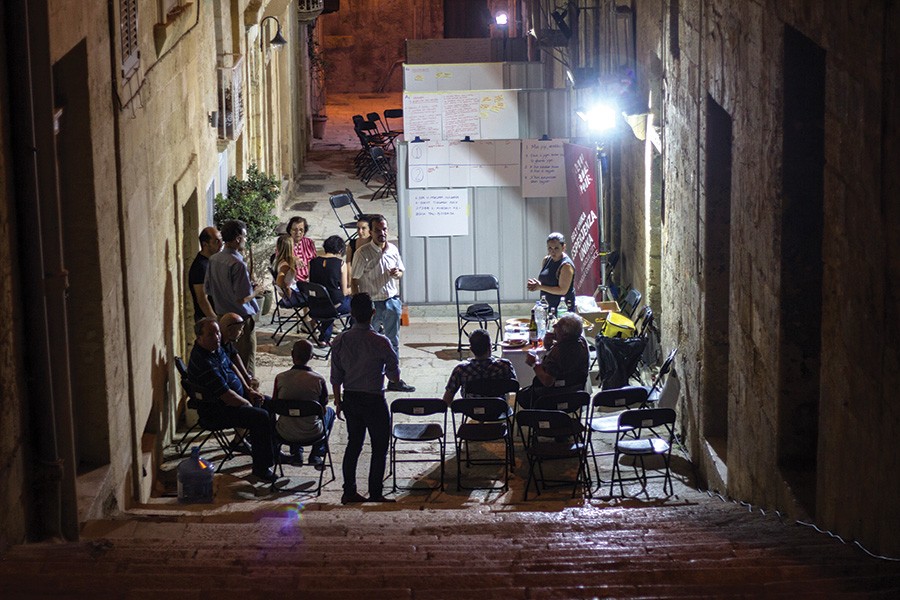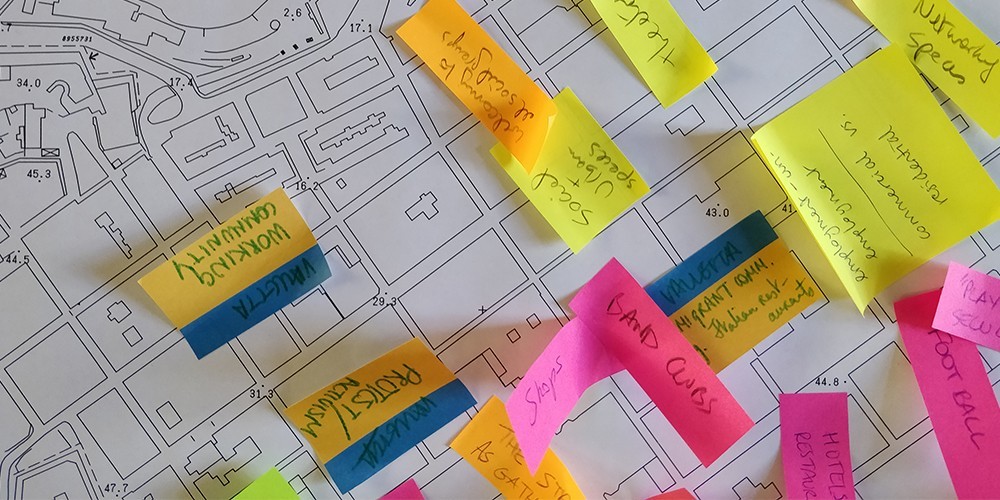Capitals of Culture want legacy. Wrocław 2016 established a microgrant system for small operators that is still in place. Aarhus 2017 combined qualitative and quantitative methods to evaluate a city’s cultural sustainability. Valletta 2018 wants to leave behind a vibrant grassroots movement actively shaping the country’s cultural policy. Rachel Baldacchino speaks to Szilvia Nagy to find out how this is possible…
A European Capital of Culture (ECoC) title brings with it a set of ideals. We imagine something of a utopia for organisations of all shapes, sizes, and stature with collaboration across all levels of the creative community. But as massive infrastructural development takes off, and public funding for large projects wades in, it is easy to see how the grassroots movements of a city can often be left behind with plenty of ideas to spare but no clout to see them through.
The cultural communities of Zsolnay Factory in Pécs are a case in point. Pécs in Hungary was crowned ECoC in 2010, winning the title largely due to a thriving grassroots culture around Zsolnay—a disintegrating, post-industrial tile factory that organically transformed into a fully functioning exhibition space with its own advanced artist residency programme. The ECoC delivered Zsolnay Factory its own university, theatre, and museum, but the NGOs that fi rst ran it were gradually pushed out. Pécs is one example, but this seems to be a shared experience among many small organisations as they struggle to find their way around big cultural projects like the ECoC.

The problem with wiping out grassroots movements is that you’re left with an institutional-cum-corporate takeover of a city’s creative sectors. In other words, the creative industry becomes a servant to its wanting political mother—the neoliberal dream. If so, why is collective action missing from such an emerging scene? This issue will be discussed at the Valletta 2018 Foundation’s annual conference under the moderation of Szilvia Nagy. A visual and cultural anthropologist with a background in political science, Nagy is teaming up with the V18 research team to develop possible solutions for Malta. Nagy is part of the Local Operators Platform (LOCOP), a research network that focuses on supporting the grassroots scene of designated Capitals of Culture.
The idea for LOCOP was born in 2010, an unintentional off shoot of Nagy’s research in the field of cultural policy. Nagy found that cultural workers from past ECoCs had trouble finding a voice within the larger structures that dominate a Capital of Culture. Many described attempting to operate in an ECoC without any form of guidance and support as ‘traumatic.’ Some even left the city when the ECoC was over. LOCOP was established to bring together cultural workers from past, ongoing, and future Capitals of Culture to talk about what can go wrong and share their experiences, Nagy explains. ‘On the basis of such discussions, we then create methods of intervening in the larger system in a way that turns what seems to be an insurmountable problem into one that can be tackled.’ The idea is to recenter the Capital of Culture around the notion of cultural sustainability. ‘The local operators of a city are the main stakeholders of the Capital of Culture project. When the year is over and the Foundation’s offices close down, these people will still be there, so we need to make sure that they not only survive, but that they are empowered.’

Nagy, who is based in Essen, has been to Malta three times this year to work with local selforganised groups in a series of workshops hosted by the Valletta 2018 Foundation. The workshops brought together a wide span of local operators, ranging from visual artists, writers, and curators, to members of homeless shelters, environmental action groups, and small business associations. Nagy armed these representatives with what she calls ‘a pro-active policy making tool’.
Nagy’s tool consists of a step-by-step guide for bottom-up policy-making. In Malta, she trained participants to map out their problems against a set of nine questions. They listed their goals, pinpointed those who could help achieve them, and identified where to start on that journey. This thought exercise trained participants to identify stakeholders and partners and analyse their specific interests and power. It is important to understand what these different groups need to hear from grassroots movements, Nagy noted. ‘The creative sector is not just about art production. It is also about reciprocity, representation, claiming rights, naming, and collaboration as a way of getting things done. So it is crucial to know how to deliver your message and to whom,’ she adds.
The creative sector is not just about art production. It is also about reciprocity, representation, claiming rights, naming, and collaboration as a way of getting things done.
A concern raised during these workshops was the lack of genuine consultation with civil society regarding public spatial planning. To engage with this question, participants mapped the current state of participatory practices in Malta. Then they identified potential opportunities to participate in planning processes through digital technologies such as GIS platforms. Another issue that came up was the struggle of evaluating the real-world impact of art-oriented grassroots projects. Given that real-world outcomes are inherently difficult to quantify, participants shifted their focus to optimal programme design, planning the project in a way that leads to a desired outcome. This meant identifying the various disciplines, contemporary issues, and communities they want to see represented in a project and making sure that the programme works to bring these facets in.
These thinking strategies, says Nagy, are like ‘learning to walk on a rocky path. Participants learn how to locate the steps that are missing. They can then decide to proceed on their own, but it is still good to know what can emanate from guidance’ and use that to build a legacy they can be proud of.





Comments are closed for this article!